
From the first electric moment when a Nigerian woman leapt into the Olympic gold circle in Atlanta, to a world record broken under Paris lights, Nigeria’s female athletes have blazed a trail that pulses with fire, defiance, and awe. Their stories don’t follow tidy chapters; they share breath, history, longing, and promise in a single, sweeping rhythm.
In the mid-1990s, Chioma Ajunwa soared into global memory when she became Nigeria’s first Olympic champion in athletics. She did it in the long jump. The moment her body arced into glory in Atlanta felt like destiny made flesh, telling the world that a Nigerian woman didn’t merely belong on the podium, she led it. Her gold created a galaxy for others to orbit. Perpetua Nkwocha came next, firing goals that tore through defenders and won her African Women’s Footballer of the Year four times. Mercy Akide ran through dreams too, the ball at her feet, a blur of possibility for girls who watched her and thought, Why not me?


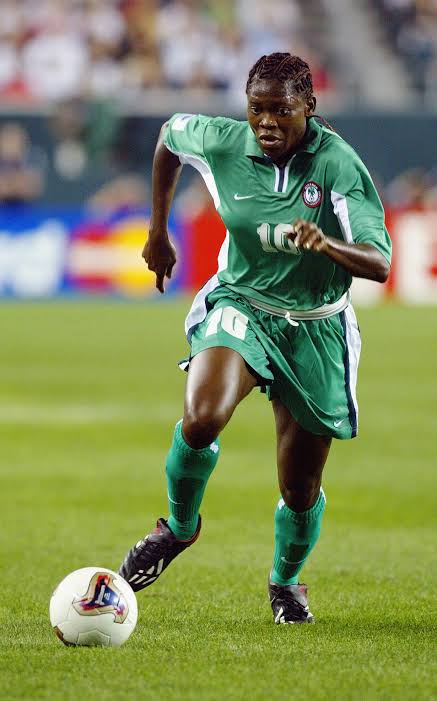
From that foundation, the next generation took shape, sprinters and jumpers who became names on scoreboards and crackling television. Blessing Okagbare sprinted into stardom, scooping titles and medals throughout the 2010s, Commonwealth gold, long jump achievement, relays, and continental records. But her fall was as dramatic as her rise; a doping positive at Tokyo 2020-level tests in 2021 led to a ten-year ban in 2022, a cautionary echo for future speed demons, glory never justifies cheating, and the track demands honesty as much as force.
Meanwhile, Tobi Amusan hurdled her way into the global consciousness in kinetic blur. She climbed to world champion, shattering hurdles records with a lean that looked effortless. Her rise felt quiet but fierce, American announcers announcing her name, fans chanting in accents not hers, yet every victory felt sweetly rooted. In world championships and continental meets, Ese Brume reached beyond horizon lines, long-jumping Nigeria back into global reckoning. Her medals at Worlds and the Olympic podium felt like stadiums erupting in slow motion, beauty turned into measurable height.
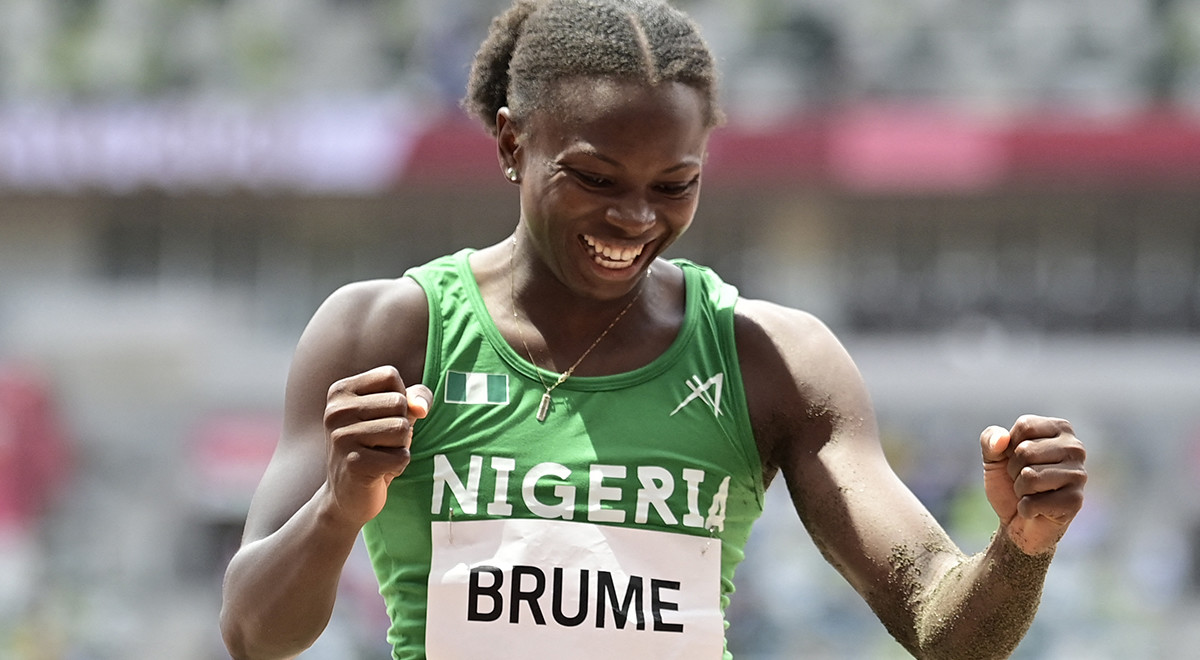
But for every leap and medal, there were cars stranded, forms unfiled, and entries lost at bureaucratic desks. Favour Ofili embodied that painful duality. She arrived on the world stage like a comet, dominant in youth championships, Olympic-bound. Yet at Paris 2024, the Athletics Federation of Nigeria failed to submit her for the 100m despite her qualification. She watched the mercury rise in the heat, but her name didn’t. “I worked for four years to earn this opportunity. For what?” she asked, heartbreak tethering her words. She still ran the 200m final, finishing sixth — grace amid dejection, but the omission became a national scandal. A ministerial panel endorsed compensation and apology, but the emotional cost was deeper. By mid-2025, she applied to transfer allegiance to Turkey, citing neglect and repeated failures by her federation. Her sprint had become a protest, the fastest way to dissent, refusing to be defined by institutional failure.

On the football field, the Super Falcons wove threads of history with fresh boots. Legends, Nkwocha, and Akide laid the groundwork for modern stars. Asisat Oshoala, a guerrilla in heels, rose through Barcelona and Champions League triumphs, crowned African Player of the Year several times. She dribbled into the world’s radar and stayed there. Onome Ebi anchored the defence like a wave breaker, featuring in six FIFA Women’s World Cups, longevity carved in positional grace. Rasheedat Ajibade, called “Rashy,” pounded goals with ferocity, and Desire Oparanozie returned from injury to remind everyone that Nigeria refuses to look away from its own scars.
Then came WAFCON 2025, a tournament stitched into Nigeria’s sporting soul. The Super Falcons did not just compete; they conquered, securing their 10th continental title, ten out of thirteen total editions since 1998, a record no other African nation comes close to matching. They beat hosts Morocco 3–2 in a pulsating final, with Esther Okoronkwo orchestrating play like a conductor, earning Player of the Final and topping the assists chart with six. Michelle Alozie, fierce and tireless, fired the semifinal goal that sent Nigeria through, and was later named in the Best XI. Chiamaka Nnadozie guarded the net with authority, recording four clean sheets that steadied the team’s march. This was not a team clawing for relevance; this was a dynasty reminding the continent that the throne still belonged in Lagos, Abuja, Port Harcourt, and everywhere in between.
On hardwood, D’Tigress roared in equal measure. In Paris 2024, they became the first African basketball team of any gender to reach an Olympic quarterfinal, stunning Canada 79–70 and toppling Australia in a 75–62 upset that echoed across the sport, Australia’s first-ever loss to an African team in Olympic play. But the story didn’t stop there. By 2025, they returned to AfroBasket and carved another line in the record books, a fifth consecutive championship, their seventh overall, surpassing Senegal’s previous streak and cementing Nigeria’s dominance on the continent. Ezinne Kalu, Amy Okonkwo, and Elizabeth Balogun, their names now shorthand for defiance in sneakers, ran plays that felt like choreography. And they did it while carrying the weight of being Africa’s only women’s side to have reached the quarterfinals of both the FIBA Women’s World Cup and the Olympics.
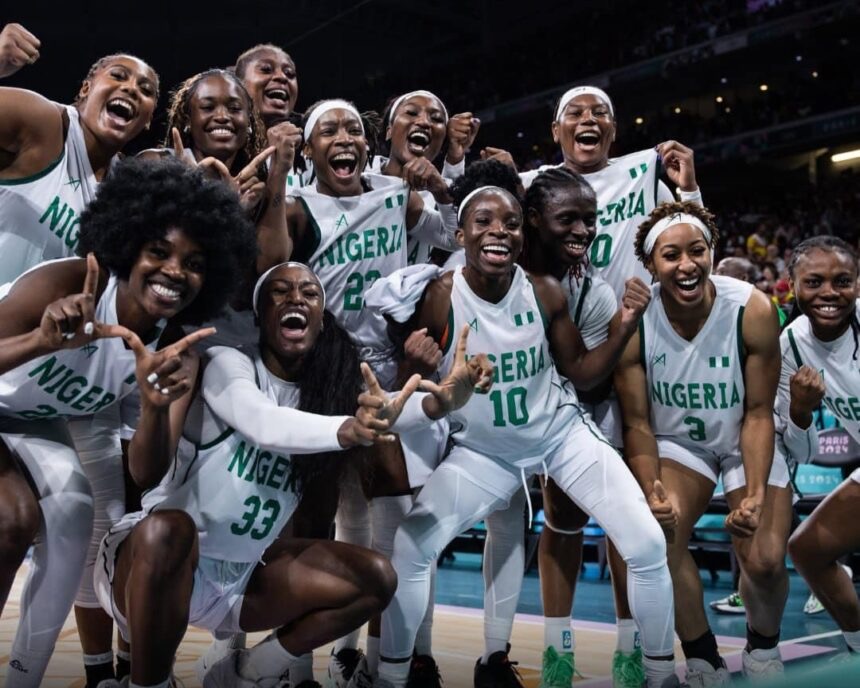
In the knockout world of grappling and lifting, strength found voices, too. Christianah Ogunsanya rose through youth wrestling to African titles, her body refusing to fold. Adijat Olarinoye became weightlifting’s rising star, with Commonwealth medals, continental dominance, and records lifted in the silence of concentration. Augustina Nwaokolo remained an emotive icon, the teenage Commonwealth gold medalist of 2010, still a spark for weightlifting’s future.
But the brightest, most resonant triumph flickered in the Paralympic spotlight. Onyinyechi Mark, a 23-year-old powerlifter from Umuahia. She wasn’t content with the entry. She arrived at Paris 2024 and shattered her own world record, not once, but twice, lifting 147kg, then 150kg, to claim Nigeria’s first gold at the Games. The plates she lifted weren’t just metal; they weighed in continents, histories, and hope. Senators lauded her; newspapers christened her “Nigeria’s strongest woman.” She stood with tears in the spotlight, the flag in her hands, a silent promise of possibility. It wasn’t flashy; it was pure, raw achievement. She had won silver in Tbilisi 2021, gold and records in Dubai 2023. Her Paris victory was not a surprise; it was an affirmation.
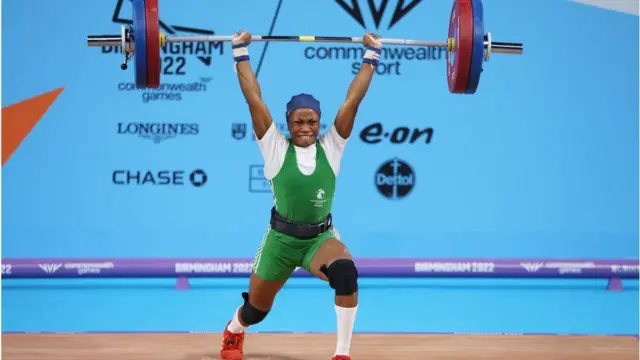
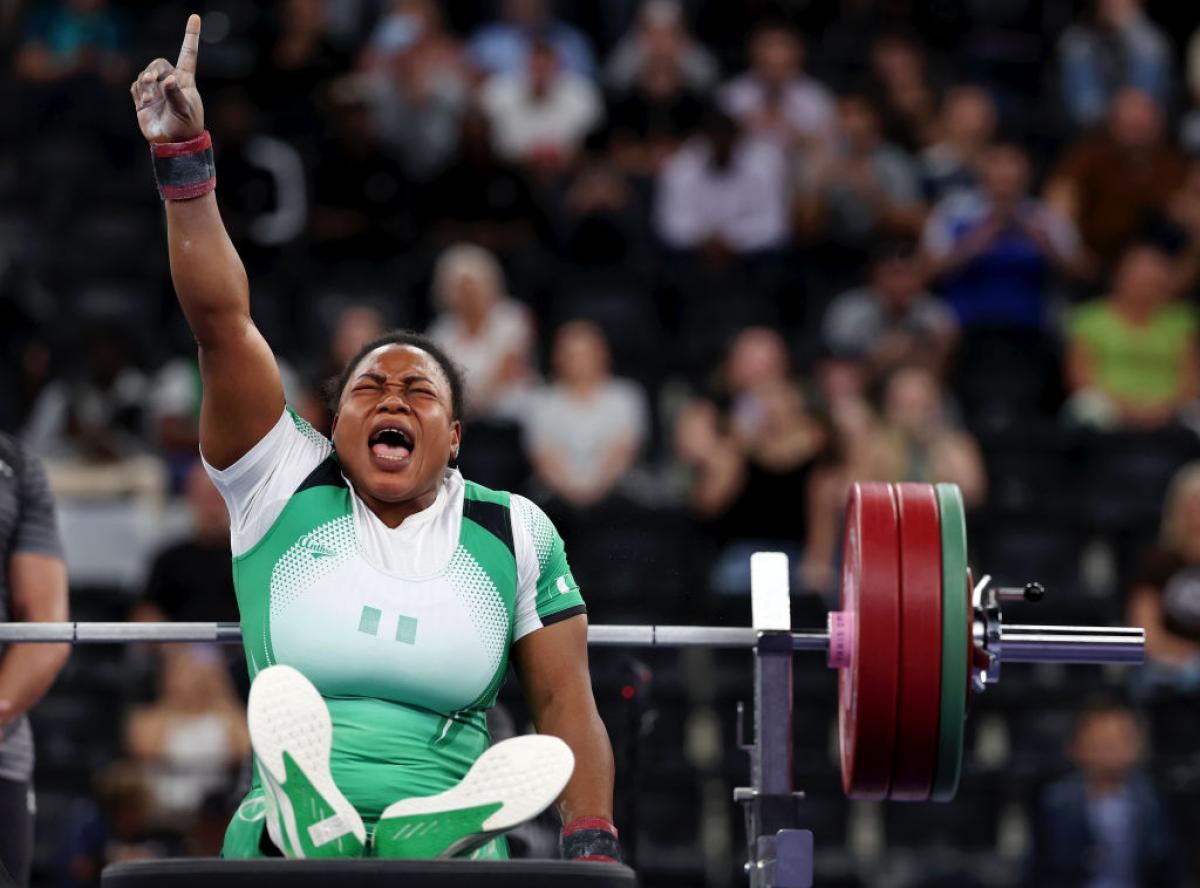
All of this unfolds across one recurring theme: Nigeria’s female athletes shine not because the system suffused them with support, but because they refused to be dimmed by its failures. They emerged from shattered budget lines, from years with little media attention, from bodies that were sometimes the only authenticated asset they owned. Visa delays, misplaced sponsorships, incomplete registration lists — they met them with muscle, mind, and an unapologetic demand for recognition.
That narrative roots itself in lineage, from Ajunwa’s jump to Mark’s powerlift; from Nkwocha’s goals to Amusan’s hurdles; from Akide’s dribble to Oshoala’s Champions League runs; from early girls in torn jerseys to D’Tigress painting courts with triumph. It plays across fields, tracks, mats, rings, and power racks. It resounds in social media threads, in stadium chants, in screens that light up when they appear.
They shine because they sprint anyway, leap anyway, lift anyway, score anyway. They run because running is how they remember where they come from, and where they can go. They play because each dribble and pass says, I am here. They fight because some system demanded they not find victory. The flame lit by pioneers still burns, bright, jagged, unstoppable.
And it will not stop. Because in every stride Tobi takes, every flick Oshoala plays, every jump Brume leaps, every medal Mark holds, there’s a spark for the next one to follow.
About The Author
Related Articles
Tinubu Follows Gumi’s Lead as Nigeria Signs Turkey Defence Deal, Fueling Speculation Over Who Really Controls the Country’s Security Policy
Nigeria’s diplomatic and security strategy is once again under scrutiny after a...
ByWest Africa WeeklyJanuary 28, 2026Burkina Faso President Ibrahim Traoré Reviews 2025 Achievements, Sets Ambitious Agenda for 2026
Burkina Faso’s President, Ibrahim Traoré, has described 2025 as a year of...
ByWest Africa WeeklyJanuary 28, 2026Mali Says Reports of New Three-State Sahel Currency Are False but Talks Continue on Economic Integration
Mali’s government has rejected claims that it and its neighbours, Burkina Faso...
ByWest Africa WeeklyJanuary 28, 2026Arthur Eze Loses Senegal Offshore Oil Block as Government Reclaims Licence
Senegal has revoked an offshore oil exploration licence held by a company...
ByWest Africa WeeklyJanuary 28, 2026


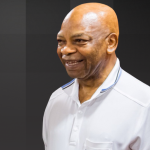
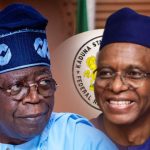
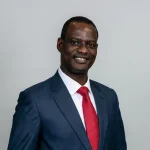

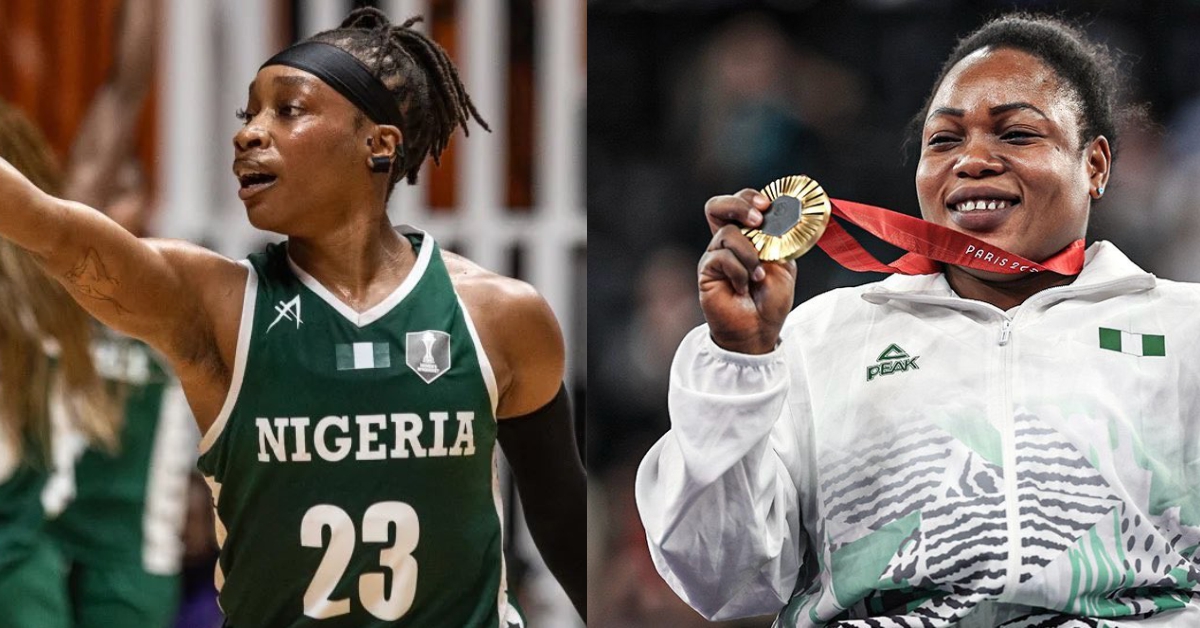


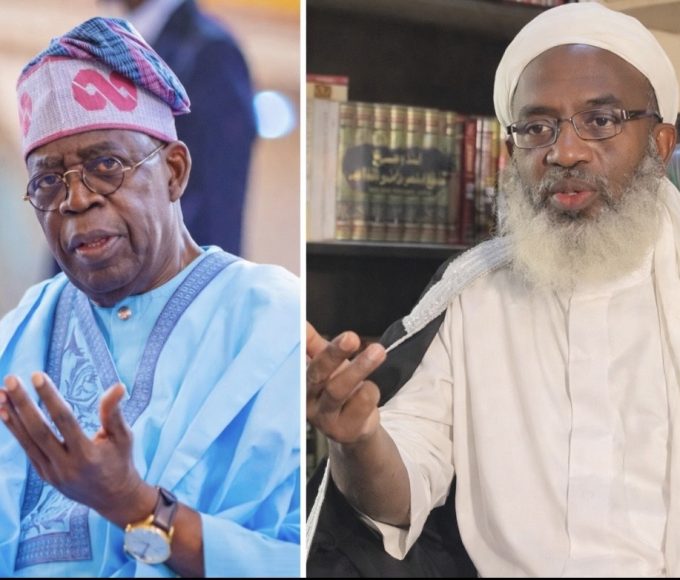

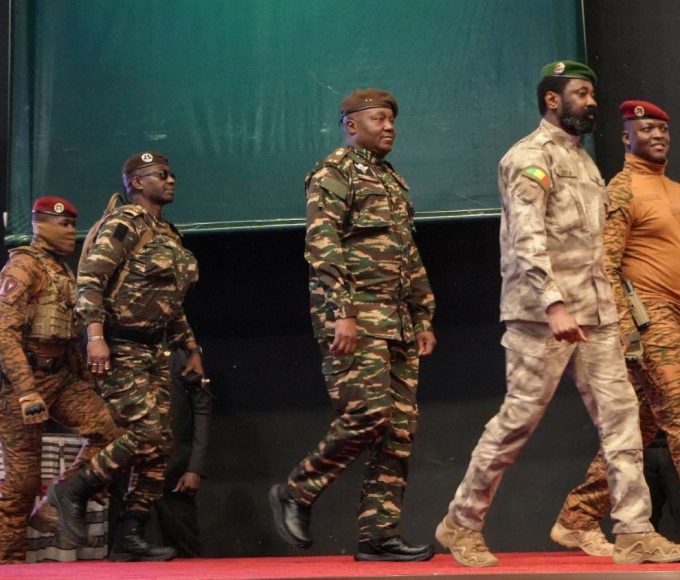
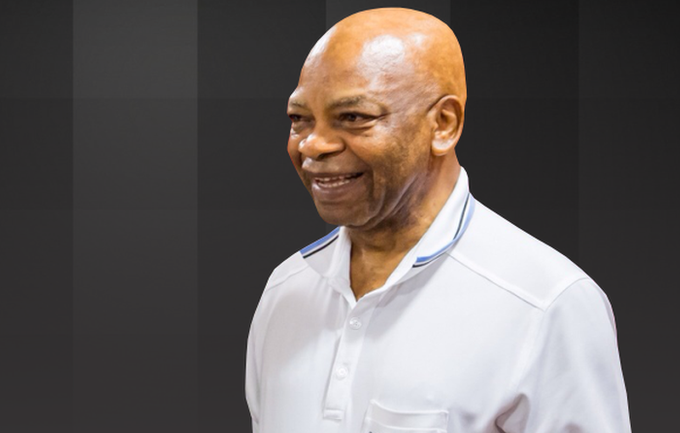
Leave a comment